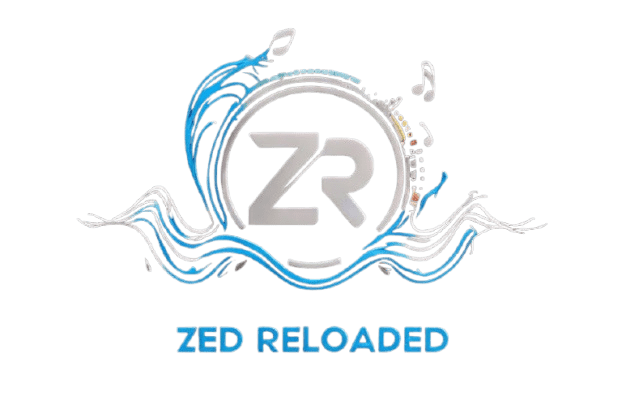12 Key Notes Upcoming Artists Should Know.
Don't Sign a Management Contract And Demand Label Services.

Table of Contents
Don’t Sign a Management Contract And Demand Label Services.
12 Key Notes Upcoming Artists Should Know About the Music Industry and Management Contract and Stop Demanding Music Label Services. My favourite one is that it’s not a get rich quick scheme, and no, it’s not an alternative for failing in school; you still have to use your brain.
1. Understand Your Contract:
(a) Royalty Structure,
Know how royalties are split (streaming, physical sales, performances, and many more.) and what percentage you will receive after the label takes its share.
(b) Advance Payments,
Labels like Kazadi Music often offer an advance against future earnings. Be clear on how this works and when you’ll begin receiving earnings beyond the advance.
(c) Rights to Your Music,
Understand how much control you retain over your music and intellectual property (e.g., ownership of masters). Some deals give the label control over these, while others may allow more flexibility for the artist. (You’ll only know by reading because school remains undefeated.)
2. Creative Control vs. Label Influence:
Firstly, a manager is an employee of the artist, either hired by the label or the artist. The manager is not the artist’s boss, contrary to the popular beliefs in our nation. The manager has zero obligation to fund the artists life or endeavours outside of managerial responsibilities for which he/she would get the industry 15% standard or negotiate for more. Don’t sign a management contract while expecting or demanding label services.
(a) Artistic Vision,
You actually have to have a plan and vision for your life; the label or manager is there to guide your decisions and not make them for you. It’s a career, not a kindergarten where you need to be babysat. Draw up a 5-7 year plan of what you want, why you want it and how you believe it will be attained.
(b) Marketing and Branding,
While the label/manager may push you in certain directions for commercial viability, it’s important to know your brand and how you want to present yourself to the world.
3. Building Your Network:
(a) Team Collaboration,
DON’T BURN BRIDGES, Labels usually provide support teams (A&R, publicists, managers, vocal coaches, media training, fan interaction training, and many more.), but maintaining your own connections and network is critical.
(b) Industry Relationships,
Relationships with producers, songwriters, and other artists are valuable, whether they are within or outside of the label’s network. It’s an industry that thrives highly on relationships, you shouldn’t also be a lapdog; don’t let anyone bully you or demean you. Know who you are when you need to. It’s ok to claim to be the best; you just need to be able to back it up because you will be tested.
4. Financial Literacy:
(a) Money Management,
Understand how you’re actually making money; DON’T BE AN IDIOT! It’s also an industry full of fakers and pretenders who don’t earn nearly as much as they portray, so don’t imitate what you don’t know about.
Just because X artist brought a Mark X after a period of time doesn’t mean you should too. You’ll put yourself under unnecessary pressure and debt. Create a system for managing your finances, taxes, and future investments.
(b) Budgeting for Projects,
Even though the label may fund certain projects, you might need to cover some costs or investments in your career, know where your money is going and where you can optimize. It is your career at the end of the day.
5. Touring and Live Shows:
(a) Tour Revenue,
Live shows and bookings can often be a major revenue stream. Understand that you are now a brand and scarcity is your biggest attraction, so you can’t be everywhere like you probably used to be or else you’ll lose your market value and not earn as much because you’re common and too available.
You cannot be at every show in the land and still think you’ll earn the same. Say NO! to some shows just for the fun of it, stop thinking with your stomach..
6. Social Media and Personal Branding:
(a) Online Presence,
In the digital age, maintaining a strong social media presence is important for fan engagement. Understand how to use platforms like Instagram, TikTok, Twitter, and YouTube for promotion. You’re competing for attention with everyone.
(b) Fan Interaction,
Your relationship with your fans is invaluable. Use social media to connect authentically, and learn how to leverage these platforms for promotions, releases, and merchandise. Having a million dormant fans is more useless than you can imagine. Aim to create a cult, people who will fight and defend you, but whatever you’re selling whenever. That’s the only way to be sustainable, still looking at 12 Key Notes Upcoming Artists Should Know about the music management contract.
7. Copyright and Publishing:
(a) Music Publishing,
Know how publishing works, including your share of the rights to the compositions, lyrics, and melodies. If the label handles publishing, understand the terms and split. Read and study these things if you want to be successful.
(b) Copyrights and Royalties,
Be aware of how your music is protected and how to collect royalties (mechanical, performance, synchronisation, and many more).
8. Marketing and Promotion:
(a) Media and Press,
Know how to handle interviews, press releases, and promotional appearances. The label may provide PR, but you should still be proactive in seeking media opportunities.
(b) Content Creation,
Video content, behind-the-scenes footage, and social media posts are powerful promotional tools. Be proactive in creating content around your music, whether it’s for TikTok, YouTube, or Instagram.
9. Understanding the Music Industry Landscape:
(a) Streaming and Digital Distribution,
Streaming is a major part of the modern music industry, and understanding how platforms like Spotify, Apple Music, and YouTube work is key to monetising your music. This means you actually have to take the time to learn these things.
(b) Trends and Audience Behaviour,
Keep an eye on industry trends and shifts in audience behaviour. What worked in the past might not always apply, and the industry is evolving rapidly. Certain stunts that others did that worked last time may not work again, be creative, be innovative.
10. Mental and Emotional Health:
(a) Work-Life Balance,
Set boundaries and find a balance that allows you to stay creative and healthy. The pressures of being an independent artist or under a label can sometimes be overwhelming. Remember that you had a life before your career and should continue to have one after it.
(b) Self-Care,
Regularly check in with yourself, your mental health, and your overall well-being. Consider seeking out resources for stress management, therapy, or support groups if necessary. Groupies are not the solution though you may have so much more access to them. Just remember that they wouldn’t be there if you weren’t famous.
11. Long-Term Career Planning:
(a) Diversify Your Income,
Leverage your newfound fame to make more money. Don’t rely solely on music sales. Look into additional streams of income, such as brand deals, merchandise, licensing, and collaborations.
(b) Sustainability,
Focus on building a sustainable career. This includes constantly evolving as an artist, seeking opportunities for growth, and thinking beyond the immediate album cycle. It’s a marathon and never a sprint.
12. Know Your Exit Strategy:
(a) Contract Termination,
Know what happens if things don’t work out as you expected or if the label wants to drop you.
(b) Future Independence,
Many artists eventually aim to be independent, so start thinking about your post-label strategy. How can you gradually build your brand, fanbase, and business so that you can move towards autonomy?
These are the 12 Key Notes Upcoming Artists Should Know Before Signing a management contract.






